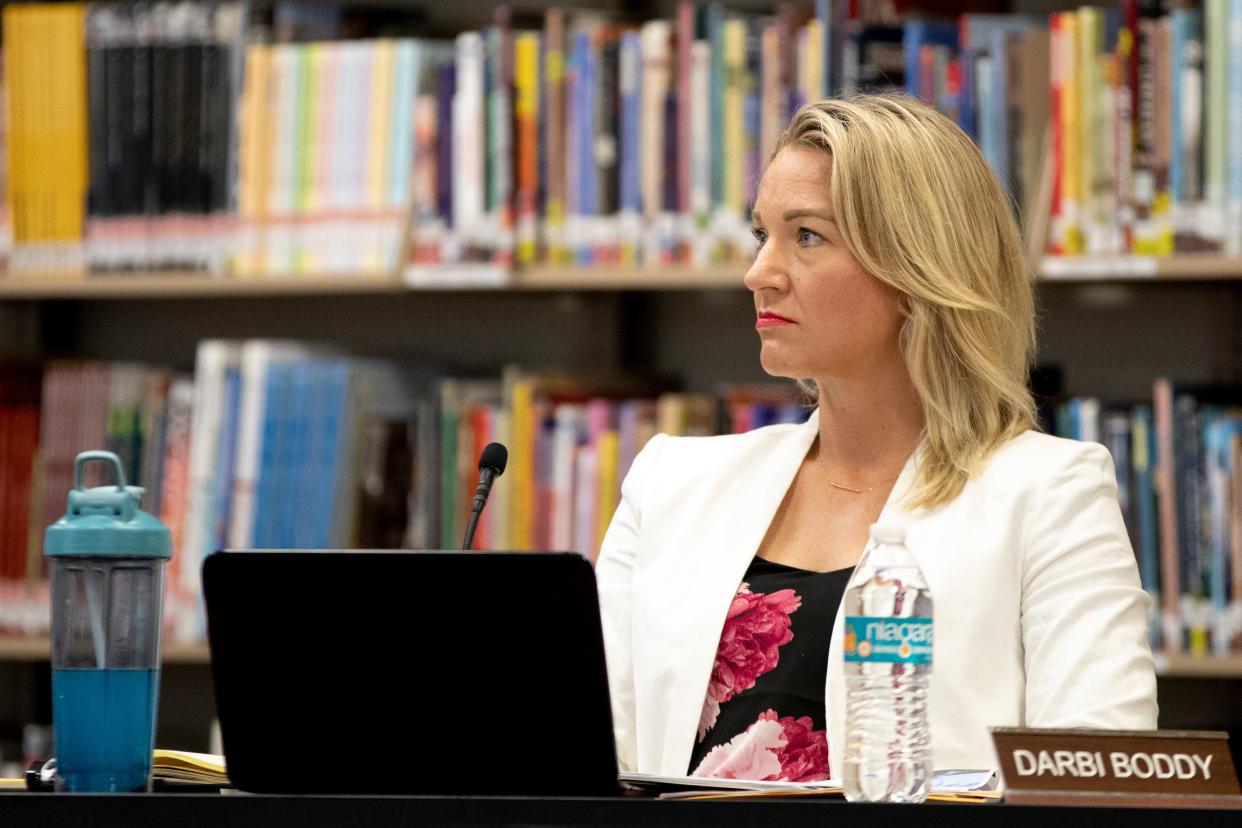From the editor: Lakota school board's public comment decision raises a red flag

"Democracy is messy, and it’s hard. It’s never easy." – Robert Kennedy Jr.
I thought about that quote when our education reporter, Madeline Mitchell, told me that the Lakota Local Schools Board of Education was scrapping the public comment portion of its meeting agenda.
To be fair, the board instead will hold a 45-minute listening session before the start of each meeting. But thanks to a small tweak in Lakota’s public comment policy, nothing is stopping board members from eliminating that, too, if at some point they decide they aren’t in the mood to listen to parents and students.
Last week, the board approved a one-word change to its comment policy during a special meeting. The original wording: “The Board shall provide a period for public participation at every regular meeting.”
The new wording: “The Board may provide a period for public participation at every regular meeting.”
One small change, one giant red flag.
A slippery slope
It’s not surprising the board took this step. As reported by Mitchell, decorum at Lakota school board meetings hasn’t been exemplary, to say the least. Drama surrounding two investigations into the behavior of former Superintendent Matt Miller boiled over last fall, leading to profanity-laden shouting matches and a controversial temporary suspension of public comments. Board member Darbi Boddy, the most vocal and unrelenting critic of Miller, has been at odds with the rest of the board. Boddy’s unannounced school visits and social media postings last spring led to censure a vote from her colleagues and demands for her resignation.
Messy indeed.
But giving itself a way to dodge public comments sends the board down a slippery slope, one that ends with elected officials being less accountable to their constituents. Again, they haven’t eliminated comments – yet. But they did move them out of the meeting proper, which sends a troubling message. And thanks to that one, tiny word change, they may decide at some point that comments aren’t worth the hassle.
But they are.
Public participation in government – even when it’s messy and slows down the process – is vital to our democracy. Sure, the board could get a lot more work done by muzzling the public. But what’s next? Meeting behind closed doors? Not posting an agenda if one of the items of business is controversial? While we’re at it, maybe we should keep those pesky reporters out, too.
Thankfully, state law prevents school boards and other government bodies from meeting in secrecy. But there’s no legal mandate to set aside time for public comments.
Despite that, most school boards value community input and have policies that not only require time for public comments, but also put in guardrails – such as time limits and residency requirements – to prevent meetings from veering off into chaos.
True to form, Boddy found herself at odds with the rest of the board and was the only member to vote against Lakota’s new public comments policy.
"It should not be that complicated to go before the board," she said during last week’s meeting.
In this case, put me on Team Boddy. No one said democracy is easy. But it sure beats the alternative.
•••
I’m excited to announce The Enquirer is about to debut a new daily newsletter.
The Daily Briefing, currently an automated list of story links, is being retired. In its place will be Daily Briefing 2.0, a fun-to-read, pithy newsletter written and curated by a team of Enquirer staffers who won’t be afraid to let a little personality shine through.
Same great rundown of local news and happenings but with a lot more soul.
If you already get the Daily Briefing in its current form, the new one will take its place April 10.
Support local journalism: Click here to see our special offers for new subscribers.
If it’s not arriving in your inbox each morning, just go to Cincinnati.com/newsletters and sign up. It’s that easy, and it's free, whether you subscribe to The Enquirer or not.
If you are a subscriber, you also can sign up for our premium newsletters, including the popular At the Table with Keith Pandolfi, a weekly serving of culinary news from our intrepid food and dining writer. It’s one of the many benefits that come with your Enquirer subscription.
But the biggest benefit is that your subscription supports local journalism. And for that, you have my gratitude.
Enquirer Executive Editor Beryl Love writes a biweekly column that takes you behind the scenes at The Enquirer. Occasionally, he shares his thoughts on local issues, particularly as they pertain to a free press and open government. Email him at blove@enquirer.com. He can’t respond personally to every email, but he reads them all.
This article originally appeared on Cincinnati Enquirer: Editor Beryl Love: Lakota schools public comment vote raises red flag

